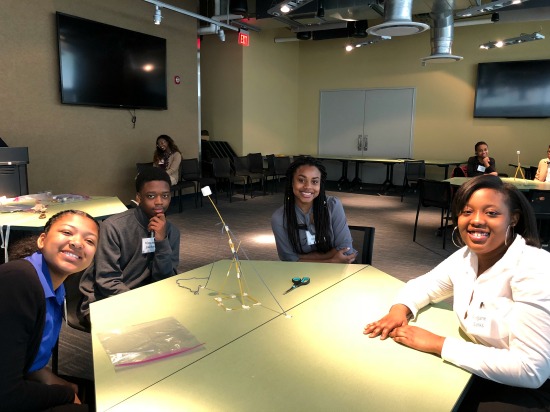
In an effort to encourage first-generation and underrepresented local high school students to pursue careers in math and science, Wayne State University will partner with the groundbreaking SMASH program to host the inaugural summer of the college preparatory academy on campus next month.
As part of the program, which is aimed at traditionally underrepresented communities, a cohort of as many as 40 Detroit area high school students will spend more than a month living on campus and taking rigorous science, technology, engineering and math (STEM) classes during the summer after their 9th grade year.
Following each summer, students will continue their SMASH experience through various academic-year programming.
The program, which will include students from the Detroit Public Schools Community District and schools within a 50-mile radius of the Wayne State campus, will run from July 7 to August 11.
“As demand for STEM education in the workforce steadily increases, universities nationwide — particularly those of us with a clearly defined urban mission — must do more to strengthen science and math skills for students from diverse and traditionally underrepresented communities,” said WSU Provost Keith Whitfield. “All of our young people deserve full access to the best resources, tools and expertise that higher education can offer.”
Following their first summer in the academy, students accepted into the program will return to the Wayne State campus for each of the next two summers, until their high school graduation. They will be joined each year by a new incoming cohort of students, meaning that as many as 120 students are expected to participate in SMASH at Wayne State during the next three years.
Wayne State will be the first university in the Midwest to partner with SMASH, joining University of California, Berkeley; Stanford University; University of California, Los Angeles; University of California, Davis; Morehouse College; and the Wharton School of the University of Pennsylvania.
In a nod to Detroit’s tech scene, SMASH Wayne State will offer a more targeted focus on innovation in addition to the usual science and math courses.
“Opening a SMASH site at Wayne State is a tremendous opportunity to bridge Detroit’s rising tech ecosystem with its roots in the automotive industry,” said Eli Kennedy, CEO of SMASH. “We’re excited to continue building our national footprint and serve Detroit’s young people. The future depends on providing these students with the opportunity to innovate and access the STEM tools they need to empower themselves and their communities.”
The Wayne State Office of Undergraduate Admissions supported recruiting students to the SMASH Academy.
“We will make every effort to recruit these students once they graduate from high school and make sure they know they belong and are welcome here at Wayne State,” said Ericka M. Jackson, director of Undergraduate Admissions. “We think this represents a wonderful opportunity to provide a rigorous and comprehensive science and math curriculum while familiarizing some of our best and brightest with the state’s premier urban research institution.”
SMASH is the signature STEM education program of the Kapor Center, an Oakland, California-based organization dedicated to leveling the playing field in tech for underrepresented people of color. SMASH launched its first summer academy in 2004 at UC Berkeley, expanding to several other California universities over the next decade and eventually adding a year-round academic program.
Since the founding class graduated in 2007, SMASH has seen 100 percent of its scholars graduate from high school and more than 90 percent complete a bachelor’s degree within four years.
For more information about the program, visit smashprogram.org. For partnership opportunities and questions, contact Site Director John Ray at john@smashprogram.org. For press inquiries about SMASH, contact SMASH Communications Manager Ashleigh Richelle at ashleigh@smashprogram.org.
Wayne State University is a premier urban research institution offering nearly 350 academic programs through 13 schools and colleges to more than 27,000 students.
